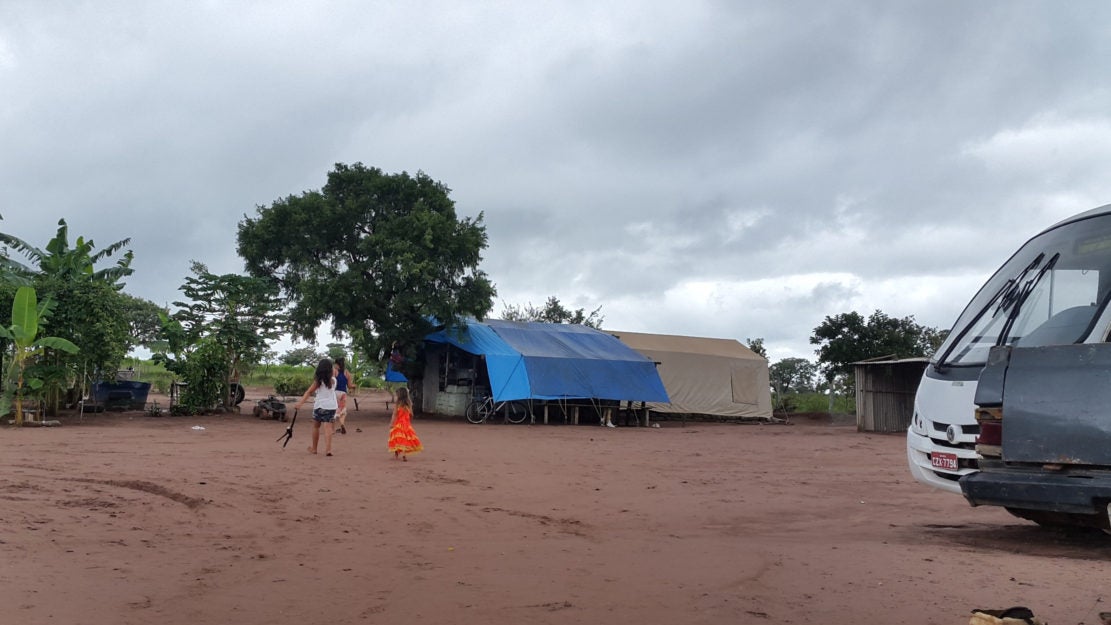By Drs. Aluízio de Azevedo Silva Júnior and Margareta (Magda) Matache
Across the world, a violent and disturbing trend of anti-Romani racist acts by the police, policy makers, media, and others is putting Romani families and communities at risk during the COVID-19 pandemic.
We are also attacked when we speak out against this injustice. For example, an op-ed addressing anti-Romani racism published by Libertatea, a well-known Romanian newspaper, was swiftly met with backlash from racist, far-right, and populist voices. The Libertatea editor’s Facebook account alone received more that 650 messages in 24 hours, most of them hateful or offensive. One message read: “the only leaders who succeeded to make a real change [in Romania] were Antonescu [the pro-Nazi leader who ordered the deportation of Roma to Transnistria in the ‘40s, which resulted in the death of more than 25,000 Romani people] and Ceausescu [the dictator].” The supremacist comments distressed and inspired an anti-racist Romanian to create a word cloud entitled “27 minutes of racism.”
This incident is just one example of the wave of hatred and anti-Romani racism seen during the COVID-19 pandemic, a wave that only exacerbates the challenges Romani people face. For centuries, structural inequalities have disrupted the lives of Romani people everywhere. Poor Romani people, historically affected by racialized poverty, have faced serious economic challenges and have limited access to water, food, and unbiased public health services. Fortunately, a considerable number of Romani activists, community organizers, scholars and allies have mobilized to support poor Romani communities with food and supplies during this challenging time. But that’s only a drop in the ocean!
While this support addressed immediate health and safety needs for a small number of people, the majority of poor Romani communities continue to live in poverty and fear. As anti-Romani racism spreads unchecked, more Romani people became afraid to share their sense of Romani heritage, choosing instead to keep it privately and safely under the roofs of their homes.
The world is largely unaware of the struggles Romani people in the Americas and other parts of the world face today, during a crisis, and every day. In response, activists and scholars have been documenting anti-Romani racism. From Spain to Slovakia, Bulgaria, and Romania, we tell, share, and archive the stories of hatred, fake news, and anti-Roma measures. Others are trying to speak up using the very few public fora that they find, including social media.
But there is more that needs to be done to protect the health and rights of Romani people right now. For example, anti-Romani racism has run rampant in Brazil, home to Latin America’s largest Romani population.
In late March, the municipalities of Cachoeira do Sul, Imbituva and Dois Vizinhos expelled groups of itinerant Kalon Romani people from their inhabiting territories. In addition, in April, the city of Guarapuava also attempted to expel another Romani group. As municipalities in Bulgaria, Romania and Slovakia have done, officials of these Brazilian municipalities justified their unjust actions by blaming and inaccurately portraying Romani people as key vectors of coronavirus transmission. Thankfully, the expulsion in Guarapuava was stopped by the Ministério Público.
We cannot sit idly by as our communities are scapegoated and subjected to inhumane treatment. The time for urgent action is now. Earlier this month, Romani associations, research groups, and activists in Brazil denounced anti-Romani racism and issued a call to action.
During these dangerous times, Romani people – especially advocates and scholars – must create a bridge to strengthen solidarity, organizing, and mobilization in our global community. So far, there have only been a few opportunities of collaboration on and between different continents exploring possibilities for a sustained global Romani movement, such as the 1971 first world Romani congress. But we need to mobilize for justice and for fair and robust political, economic and cultural participation of Romani people.
Romani people also need more allies, upstanders to speak up and speak out against anti-Roma racism. We need anti-racists of all backgrounds to lead by example. Let us all rise in solidarity with our Romani sisters and brothers!
Dr. Aluízio de Azevedo Silva Júnior is a Romani activist, PhD in Communication and Romani Health and Expert in Social Communication at the Ministry of Health of Brazil.
Dr. Magda Matache is the Director of the FXB Center’s Roma Program. Learn more about the program here.
Photo of a Roma camp in Brazil. Photo Credit: Dr. Aluízio de Azevedo Silva Júnior.

